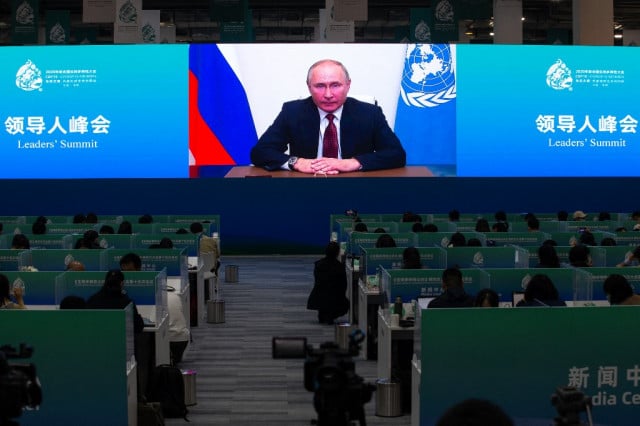Russia defends veto of UN climate change resolution

- By Agence France-Presse (AFP)
- December 14, 2021 6:05 PM
Moscow, Russia | Russia defended Tuesday its move to veto a Security Council resolution linking climate change and global security that was supported by a majority of UN member states.
Backed by Niger and Ireland, the draft resolution called on Secretary-General Antonio Guterres to "integrate climate-related security risk as a central component into comprehensive conflict-prevention strategies."
The text won support from 12 of the Council's 15 members.
"The resolution was completely unacceptable. And not only for Russia, a number of countries supported us," Kremlin spokesman Dmitry Peskov told reporters.
"The topic of climate cannot be a factor that limits the right of countries to develop," Peskov said.
He added that "highly-industrialised" countries which "significantly harmed the climate" in order to develop their economies are now setting the agenda.
India also voted against the resolution, arguing that global warming was chiefly an issue related to economic development, rather than international security.
For diplomats speaking on condition of anonymity, Russia's opposition was hard to understand given that the resolution itself "was not radical," according to one of them.
Russian President Vladimir Putin was for years notorious for his scepticism about man-made global warming and saying Russia stands to benefit from it.
But his approach has changed as Russia -- one of the world's biggest producers of oil and gas -- sees the devastating effects of climate change.
The country has set numerous heat records in recent years, and the rising temperatures have contributed to severe floods and forest fires that have affected Siberia with increasing regularity.
Putin said earlier this year that Russia -- the fourth-highest carbon emitter -- was aiming for carbon neutrality by 2060.
© Agence France-Presse















